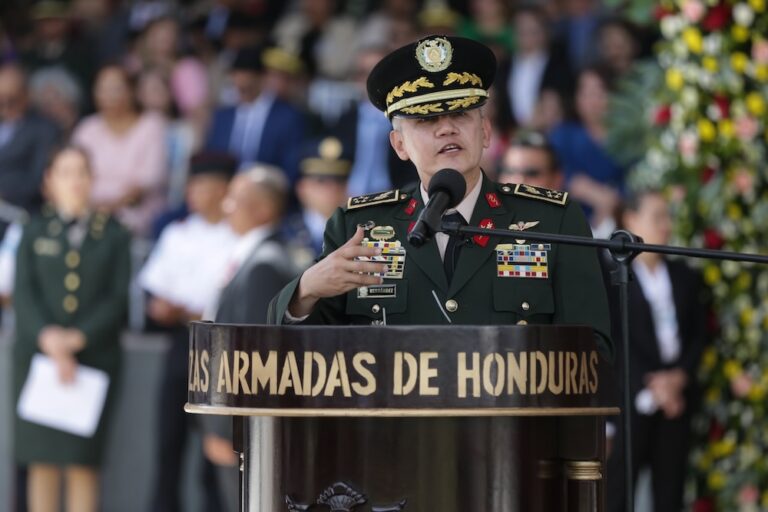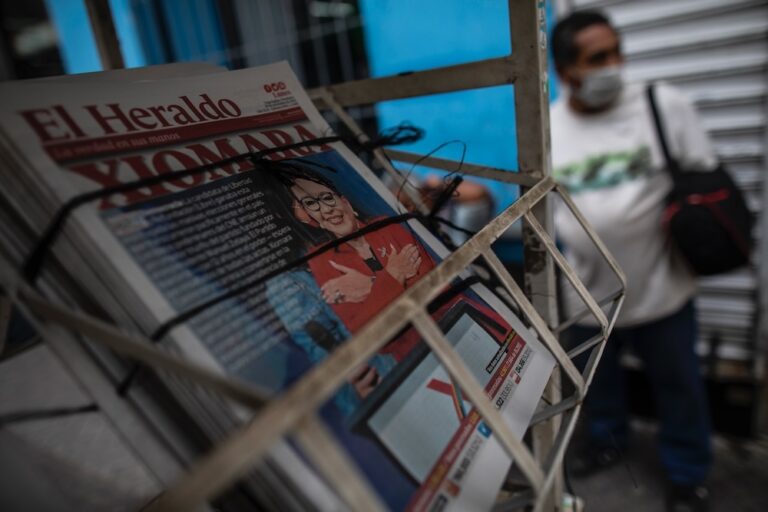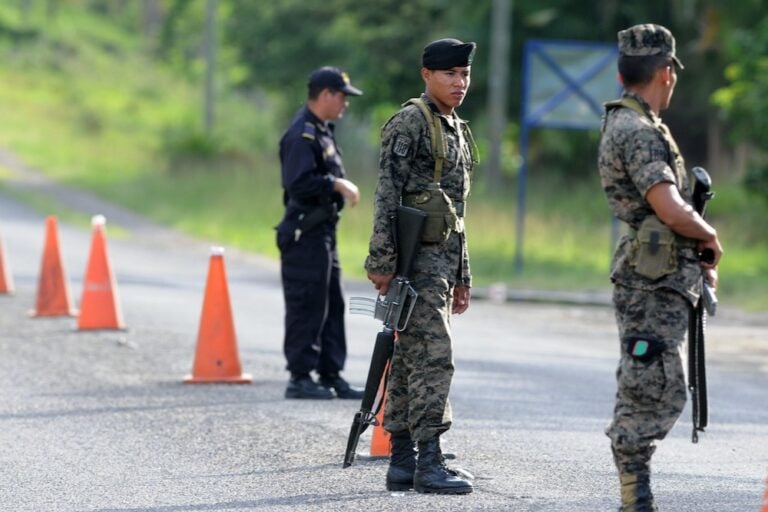(PROBIDAD/IFEX) – The following is a 20 January 2006 PROBIDAD press release: In its 2005 annual report, the Committee for Free Expression (el Comité por la Libre Expresión, C-Libre) underlines that – while there may have been a “small improvement” in the freedom of expression situation in Honduras over the year ? lawsuits, together with […]
(PROBIDAD/IFEX) – The following is a 20 January 2006 PROBIDAD press release:
In its 2005 annual report, the Committee for Free Expression (el Comité por la Libre Expresión, C-Libre) underlines that – while there may have been a “small improvement” in the freedom of expression situation in Honduras over the year ? lawsuits, together with the exercise of censorship and self-censorship, remain the main means by which the practice of journalism continues to be restricted.
According to the report, censorship and self-censorship become even more apparent around election time. “No doubt, the electoral season exposes the state of freedom of expression and the right to information. Honduras held two elections in 2005, the primaries on 20 February and the general elections on 27 November. These elections not only imposed a thematic agenda on the media, they actually mediated the very role played by the majority of the media,” the report observes.
This context, the report continues, shaped the course of censorship and self-censorship in the country, with incumbent officials, new aspirants to public office, and media owners all continually pressing for a particular slant in the coverage of any given candidate or political party.
Nonetheless, there were some positive developments for the practice of journalism in 2005, with various lawsuits resolved in favor of media workers, as in the cases of Sandra Maribel Sánchez, Rossana Guevara, Frank Mejía, and Carlos and Suyapa Banegas. Similarly, the editors of the newpaper “La Prensa” reached a conciliatory arrangement with a judicial magistrate.
In addition, the “insult” (“desacato”) provision was abolished in 2005. This legal implement allowed for the punishment of the press, as well as any citizen, for offending the president or any other high-ranking government official.
The report also celebrated the fact that the constitutional guarantee of the principle of “habeas data” was advanced by another step in 2005. The constitutional reform received preliminary ratification by Congress and should be ratified by the legislature sometime in 2006.
In its overview, C-Libre also observes that journalists face increasing insecurity due to the increase in delinquency and organized crime. Reflective of this fact, 2005 signified one more year of impunity in the case of murdered journalist German Antonio Rivas Morales, who was killed on 26 November 2003 in Santa Rosa de Copán. There have been no significant findings by the agencies investigating the case. The advance of various forms of organized crime, which threaten the economy and national politics; the complete impunity with which these criminals operate; and the inefficiency and politicization of the justice system, collectively render journalism a high-risk occupation throughout the country, according to the report.
In terms of the right to information, the report reviews the obstacles that prevented the passing of the access to public information law in 2005. Central to this failure were factional interests and the desire of some politicians to maintain a culture of impunity, secrecy and corruption in the county. One has to hope that the government that assumes office on 27 January 2006 will approve the Transparency Law, which deals with access to public information and the protection of individual privacy. That the Alianza 72 is lending its support to the law is a positive sign, the report notes.
With regard to threats and forms of intimidation against the press, the report mentions cases of various journalists from the interior, such as those of Eduardo Maldonado and Esdras Amado López, who are facing charges for having disseminated information of public interest. Also cited are the cases of two important media owners charged with “crimes against honor”.
BACKGROUND:
C-Libre was formed in June 2001, after a series of violations against freedom of expression and the right to information, which culminated in the firing of various journalists as the result of pressure exerted by then-president Carlos Flores (1998-2002). These firings led to the filing of a complaint with the Special Rapporteur on Freedom of Expression of the Organization of American States (OAS). This agency, in turn, called attention to the “worrisome” situation of the press in Honduras. This formal, documented complaint was the predecessor of the annual report that C-Libre would later produce.
From its creation, C-Libre, run by volunteers, began to collect information, document cases, circulate alerts, and prepare status reports on the situation of the press, journalists, and freedom of expression. This is the third National Report to review the situation confronted by journalism and journalists in Honduras.
References:
Informe de Libertad de Expresión 2005 (Report on Freedom of Expression 2005)
http://probidad.org/alertas/2006/InfAnualLibertadaexpresion2005Clibre.pdf
This alert was prepared by PROBIDAD with information provided by C-Libre.


